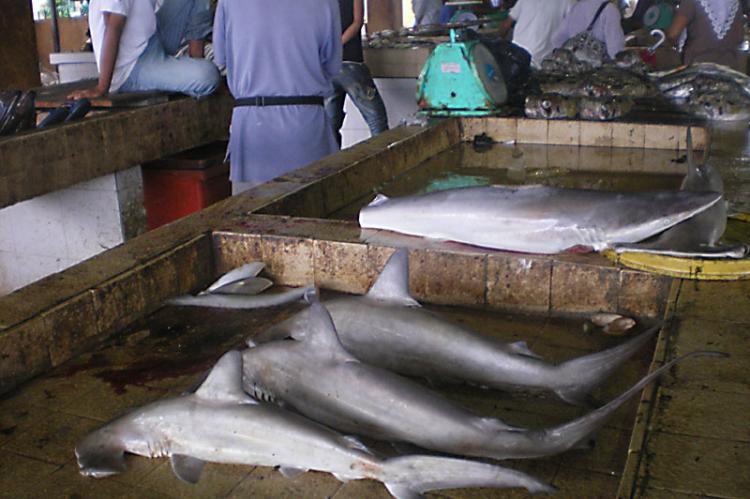Bad management endangers sharks in the Coral Triangle
WWF and TRAFFIC recently released a new report that shows the need for a more concerted effort in managing shark fisheries in the Coral Triangle, to help conserve dwindling populations of these threatened species. Indonesia and Malaysia are among the top 20 shark catching nations in the world—Indonesia being the single largest catcher.
The report, An Overview of Shark Utilization in the Coral Triangle Region, examines the catch, trade and management of sharks in waters of the six Coral Triangle countries: Indonesia, Malaysia, Papua New Guinea, the Philippines, Solomon Islands, and Timor L´este, plus the neighbouring countries of Vietnam and Fiji.
Lack of data
“This report identifies crucial gaps in these countries’ implementation of management measures and data collection. In some cases this reflects inconsistency with basic requirements of the regional bodies and international conventions of which they are members,” says Glenn Sant, TRAFFIC Global Marine Programme Leader.
Key issues highlighted include the general absence of specific management measures for sharks, a lack of species identification in shark catch and trade reports, and the general lack of available data on both shark catch and trade across the region.
“A lack of data is detrimental to the sustainable management of sharks in the region and needs to be urgently addressed as sharks are heavily targeted in several of these countries,” adds Sant.
Shark fin soup
Some fisheries target sharks for their meat but the main driver of unsustainable fishing for sharks is currently the demand in Asia for fins, which are used in shark fin soup.
“The development of sustainable shark fisheries in this region has a long way to go. None of the countries can currently claim to be effectively and responsibly managing their shark resources,” says Sant.
The report encourages local and regional management bodies to examine the factors needed for responsible shark utilization.
“Responsible utilization of shark resources requires responsible management, trade, and consumption. Each of these elements requires adequate governance and monitoring to provide confidence that traded shark products are from sustainable sources,” adds Sant.


